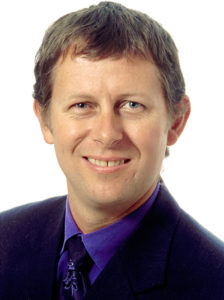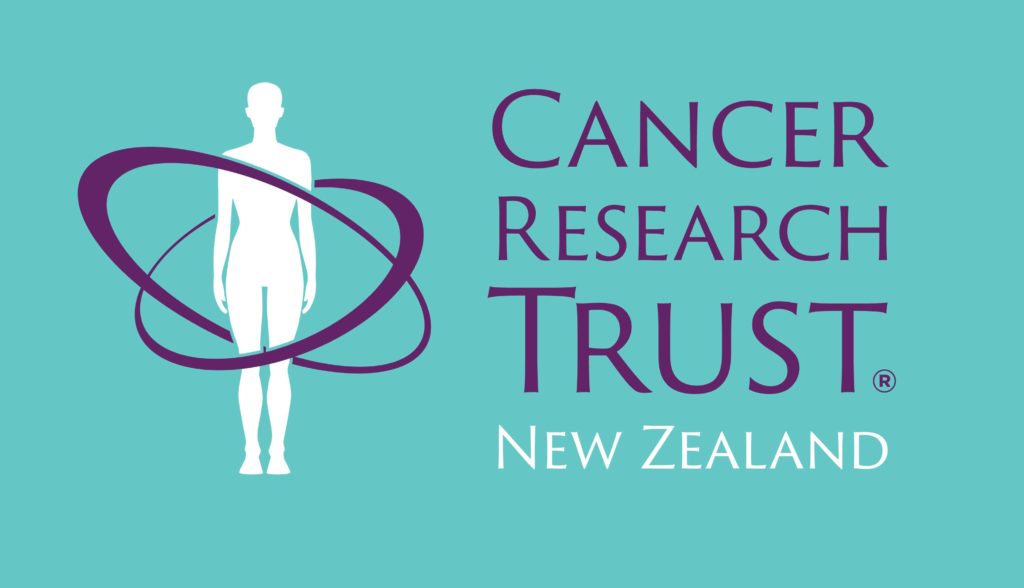
A major new treatment is being used in cancer centres around the country – thanks to a Cancer Research Trust New Zealand-funded clinical trial.
The trial, at Canterbury Regional Cancer and Haematology Service, compared long-course radiotherapy for lung cancers to a new method, and showed that the new therapy, given in only three treatments over two weeks, is better than current radiotherapy, which is given over six and a half weeks.
In the past, each appointment was approximately an hour and many patients found staying still for this length of time uncomfortable.
Further developments in technology have made the process significantly faster, and treatment appointments have been reduced from an hour to 20-25 minutes. Each year, 20 patients are now receiving shorter treatments.
Chief Medical Physicist Andrew Cousins says the project’s one of the things he’s proudest of since he began working for Canterbury DHB: “Stereotactic ablative body radiotherapy has now become our standard treatment for early stage inoperable lung cancer and Canterbury leads New Zealand in the implementation of this technique.”
Patients who have received the new therapy are showing faster recovery, better survival rates and the focused treatment means less scarring to the lung tissue.
“The whole procedure was organised quickly,” says Jo, who was treated in Christchurch in days between the treatments, and I was able to do whatever I wanted. I suffered no ill effects at all – no burning – and I found out last week that my treatment was completely successful.”

Lung cancer kills more people in New Zealand than any other cancer – largely because it’s often detected late, when the disease is very advanced and has spread. However, many cancers can be cured if they are found and treated in time.
Cancer Research Trust New Zealand specialises in supporting cancer research right from the laboratory to first-use in patients. It was back in 2012 that radiation oncologist Dr Scott Babington received the grant from Cancer Research Trust New Zealand that allowed his team to begin trialing a new method of treating lung cancer patients. “Stereotactic ablative radiation therapy (SABR) can be used to treat early-stage lung cancers and cancer that has spread from other places to the lung, liver, spine or brain,” he says. “It’s a focused radiation therapy that delivers a high dose to the cancer or tumour, with very little to the surrounding tissue.”
“The trial showed SABR is more
effective compared to standard
Radiotherapy,”
– Dr Scott Babington
It was a very important start, taking an idea, testing and then leading to the trial with Canterbury Regional Cancer and Haematology Service. This is vital work which makes such a difference to patients who have cancer and their whanau. We are making such a difference already, but there is more work to be done.
To find out more, visit cancerresearchtrustnz.org.nz

We’re getting cancer on the run
RESEARCH ACTION: Cancer Research Trust New Zealand provides grants to doctors and scientists conducting ground-breaking cancer research that will lead to improvements in the prevention, detection, diagnosis or treatment of cancer, or improvements in palliative care. Like the Palliative Care breakfast lecture series, the Trust also helps fund people working in medical and scientific cancer-control to support them in professional development and education.
DONATE TODAY: One in three people is affected by cancer – and Cancer Research Trust New Zealand is doing its best to help each one. Since its foundation it has funded over $16 million in research projects, education and professional development. Every cent of every dollar donated is applied to the work of the trust.
In 2019 Cancer Research trust has received 50 applications for funding support across a range of potential projects – from combination therapy against lung cancer research, developing tools to identify subgroups of acute myeloid leukaemia, to investigating the treatment of anti-oestrogen resistant breast cancer. In addition, requests have been received for travel and education grants to attend courses and conferences. Over $3 million in worthwhile requests for funding have been received while the Trust will only be able to approve funding for a third of these requests.
Find out more, https://www.cancerresearchtrustnz.org.nz/we-are-getting-cancer-on-the-run
Follow Cancer Research Trust on Facebook at https://www.facebook.com/CancerResearchTrustNZ/
If you want to donate: https://www.cancerresearchtrustnz.org.nz/donate
Leave a bequest: https://www.cancerresearchtrustnz.org.nz/donate/bequests









Join the Discussion
Type out your comment here:
You must be logged in to post a comment.